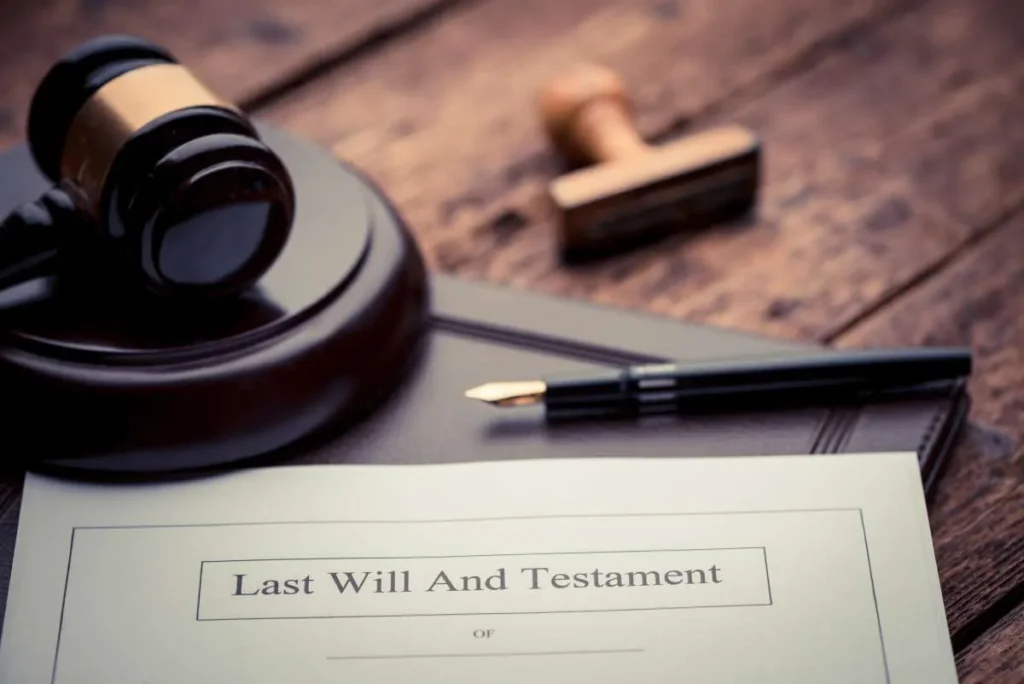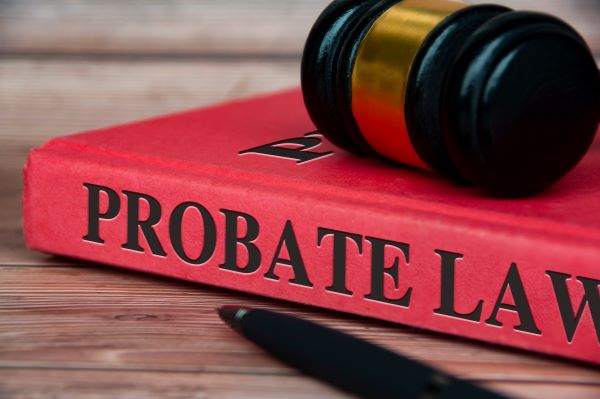If you’re wondering how to probate a will in Collin County Texas, you’re already facing one of the most emotionally complex legal processes in Texas law. Grief doesn’t wait, and neither do legal deadlines. Probate law in Texas can feel overwhelming—especially when disputes arise. But here’s the good news: with the right knowledge, guidance, and preparation, you can navigate the system and honor your loved one’s wishes.
This article breaks down the entire process of probating a will in Collin County, step by step. It also dives into contested wills—when things don’t go as planned, and family conflict spills into the courtroom. Whether you’re named executor in a valid will or you’re an heir challenging one, this guide will help you understand what’s ahead.
And we’re not doing it with stiff legal lingo. We’ll walk you through real-life examples, practical advice, and insight from an analytical lens—because understanding probate isn’t just about the law, it’s about people.

What Does Probate Mean in Texas?
Before we get specific about how to probate a will in Collin County Texas, let’s clarify what probate is.
Probate is the legal process that occurs after someone passes away. It involves validating the will (if there is one), appointing someone to manage the estate, paying debts and taxes, and distributing property to heirs. In Texas, probate isn’t always required—but when there are substantial assets or disputes, it often is.
When Is Probate Required?
You’ll likely need to go through probate in Collin County if:
- The deceased left a will and owned property in their name alone
- There are bank accounts or real estate without beneficiaries or survivorship rights
- The estate needs to pay debts or resolve disputes among heirs
If the estate is small (under $75,000, not counting exempt property), or all property was held jointly or with named beneficiaries, probate may not be necessary.
Step One: Locate the Will and File in Probate Court
The first major step in how to probate a will in Collin County Texas is to locate the original, signed will. Photocopies won’t cut it in most cases. Once you have it, you’ll need to file it with the Collin County Probate Court (located in McKinney, Texas).
Timeline Matters
Texas law requires you to file the will within four years of the decedent’s death. If you miss that deadline, you may lose the ability to probate the will altogether, and the estate will be treated as if there was no will (intestate).
Where to File
In Collin County, probate filings are handled by the Collin County Clerk’s Office, and all hearings go through County Court at Law No. 1, which is the designated probate court. You can file electronically through the county’s online system or file in person.
Required Documents:
- Original will
- Application for probate
- Death certificate
- List of heirs and estate property (if known)
Once filed, the court will set a hearing date to start the formal process.

Step Two: Attend the Probate Hearing
After filing, you’ll receive a court date. In Collin County, hearings usually take place within 2–6 weeks of filing, depending on the court’s schedule.
Who Needs to Attend?
If you’re the executor named in the will, you’ll need to attend the hearing and swear an oath to carry out your duties faithfully. If the will isn’t contested and everything is in order, the court will officially appoint you as executor (or “personal representative”).
From here, you’ll receive Letters Testamentary—legal documents that give you authority to act on behalf of the estate, access accounts, sell property, and more.
What Happens If There’s No Will?
If no will exists, or the will isn’t valid, the court will open an intestate probate case. The judge will appoint an administrator, usually a close relative, and the estate will be distributed according to Texas intestacy laws.
Step Three: Notify Heirs and Creditors
One of the most overlooked parts of how to probate a will in Collin County Texas is the duty to notify. After the court appoints the executor, you’re required by law to notify certain parties.
Who Needs Notification?
- All heirs named in the will
- Any other potential heirs (especially in contested cases)
- Secured and unsecured creditors
- The general public (via a public notice in the newspaper)
You must file proof with the court that you completed these steps. Failure to notify can delay probate or even invalidate decisions made.
Step Four: Inventory the Estate
Once you have legal authority, your next responsibility is to inventory the estate. This includes everything the deceased owned—real estate, bank accounts, investments, vehicles, business interests, and personal property.
Detailed Inventory Required
You must file a sworn inventory with the court within 90 days of your appointment. This document needs to:
- List all estate assets and their estimated value
- Identify debts and obligations
- Show the net value of the estate
In Collin County, you may request an extension if you need more time, but you must do so before the deadline expires.

Real-Life Example: The Forgotten Land
When Carla’s mother passed away in Frisco, she filed to probate the will in Collin County. While gathering financial records, she discovered her mom still owned a 3-acre tract of land near Celina—land that wasn’t listed in the original will. Her attorney helped amend the inventory and notify the court. Had she missed it, the land could have been lost or sold without legal clearance.
Step Five: Settle Debts and Pay Taxes
Texas law prioritizes debts in a certain order—funeral costs, administrative fees, secured debts, and then unsecured debts. As executor, you must make sure valid debts are paid out of the estate before distributing anything to heirs.
Taxes in Probate
Even though Texas doesn’t have a state estate tax, federal estate tax may apply if the estate exceeds $13.61 million (as of 2024). Income taxes may also be due if the deceased earned income during the year.
This step is where many executors feel overwhelmed, but your probate attorney or CPA can help you navigate tax returns and payment deadlines.
Step Six: Distribute the Estate
Once debts are paid, it’s time to distribute the remaining property to heirs according to the will. But this step only happens after court approval and verification that you’ve completed your duties as executor.
Final Accounting Required
Before closing the estate, you’ll need to provide a final accounting to the court and possibly to heirs. This report shows every dollar that came into and out of the estate.
Once approved, you can distribute remaining property and request the court to close the probate case.
What If the Will Is Contested?
Contested wills are not rare, especially in high-value estates or blended families. When someone challenges a will, things get complicated—and costly.
Common Reasons for Contesting a Will:
- Allegations of undue influence (someone pressured the deceased)
- Claims that the deceased lacked mental capacity
- Accusations of fraud or forgery
- Disputes over excluded heirs
Contested probate cases are heard in the same Collin County probate court but require more time, evidence, and often depositions or mediation.
Real-Life Dispute: The Missing Pages
In Plano, a family contested a will after discovering the last two pages were missing—including the signature page. One sibling claimed the copy wasn’t valid, while another insisted it was what their mother intended. The judge ultimately denied probate of the copy, and the estate defaulted to intestate succession. Months of court time and thousands in legal fees could have been avoided if the original had been preserved.
Handling Probate Disputes: What You Can Do
If you’re expecting a contested will—or need to challenge one yourself—there are several steps you should take immediately:
- Hire a probate litigation attorney with experience in Collin County.
- Gather evidence—emails, letters, medical records, or witness statements.
- Request a temporary injunction if property is at risk of being sold or moved.
- Stay involved—attend court dates and communicate with the estate’s attorney.
- Consider mediation—many disputes settle outside of court with professional guidance.
The longer you wait, the fewer options you may have.
How Long Does Probate Take in Collin County?
In uncontested cases, probate in Collin County typically takes 6 to 12 months. Contested wills or complex estates can stretch the timeline to 18 months or more.
Delays often result from:
- Missing or incomplete paperwork
- Heirs who can’t be located
- Creditor claims
- Will contests or disputes
Keeping organized and working with an experienced attorney can help move the process forward efficiently.
Costs of Probate in Collin County Texas
Probating a will isn’t free. Even without disputes, costs include:
- Court filing fees (around $400–$500)
- Attorney’s fees (often hourly or a flat rate)
- Executor compensation (if claimed)
- CPA or appraisal fees

Many of these costs are paid from the estate, but it’s still crucial to plan for them upfront.
Final Thoughts: How to Probate a Will in Collin County Texas the Right Way
Probating a will is never easy, but it doesn’t have to be confusing or chaotic. By understanding how to probate a will in Collin County Texas, you give yourself the tools to make informed decisions, avoid costly mistakes, and honor your loved one’s legacy.
Start by locating the will, hiring a knowledgeable probate attorney, and filing with the court as soon as possible. Stay organized, communicate with heirs, and don’t underestimate the importance of timelines and paperwork.
If a dispute arises, know that you’re not alone—and that the Collin County probate system provides a structured, if challenging, path to resolution.
Probate may be the last chapter in someone’s life story, but how it’s handled will shape how that story is remembered. Do it with care, and do it right.








